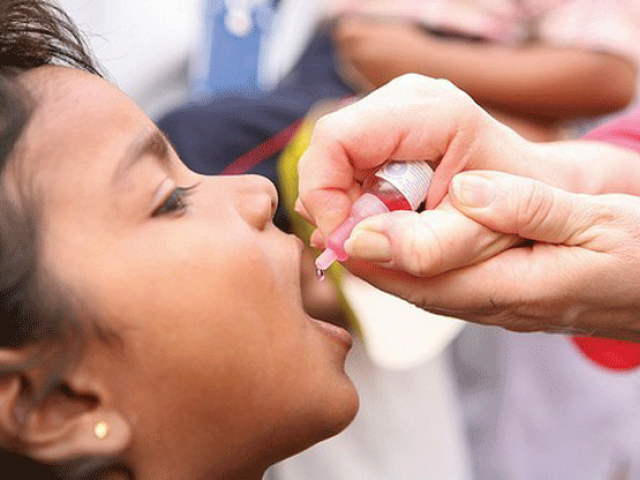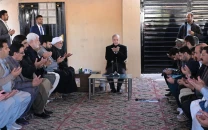Sustain efforts until virus is eradicated
Interim health minister reassures of govt commitment to combating disease

PHOTO: REUTERS
“We have to sustain this level of national commitment and must continue to take polio eradication with the same degree of seriousness till the job is done,” stated Caretaker Health Minister Yousaf Shaikh as he reviewed the progress made in eradication the virus during a high-level meeting at the health ministry on Tuesday.
Sindh's war against polio is far from over
The federal minister directed the programme to convene a meeting of the national task force under the caretaker prime minister.
“Polio eradication enjoyed broad political and popular support in our country and this commitment has shown how much difference can be made when our people come together to work above political lines towards a national cause,” he said, as he assured health officials that the interim government will continue working on eradicating the virus.
National Coordinator Dr Rana Muhammad Safdar gave a detailed briefing on the progress made in eradicating the virus as well as mitigation strategies to overcome the remaining risks in the low-transmission season 2018-19.
While appreciating the hard work of the frontline workers, the National Health Services Secretary Captain (retired) Zahid Saeed urged the need to plug gaps in health and immunisation systems which were highlighted by the polio eradication programme.
“Making combined efforts for better routine immunisation coverage, improving water and sanitation and addressing malnutrition would give the programme a decisive push,” Capt Saeed said. He further advised the programme to finalise the project concept-I (PC-1) for next three years (2019-2021) to ensure adequate provision of resources during the transition phase.
Reservoir for virus: PM’s focal person on polio monitors campaign in twin cities
“Progress towards ‘zero polio’ would not have been possible without the dedication of the government leaders across political divides and at all levels,” Dr Safdar stated while providing a breakdown of cases which surfaced over time.
From 306 in 2014, cases fell to 54 in 2015, 20 in 2016 eight in 2017.
The job is, however, far from over as the virus has still managed to paralyse three children in Dukki, Balochistan this year while environmental samples continue to be detected in core reservoirs of Karachi as well as Quetta and Peshawar, and some other parts of Khyber-Pakhtunkhwa, he said.
Published in The Express Tribune, July 4th, 2018.



















COMMENTS
Comments are moderated and generally will be posted if they are on-topic and not abusive.
For more information, please see our Comments FAQ